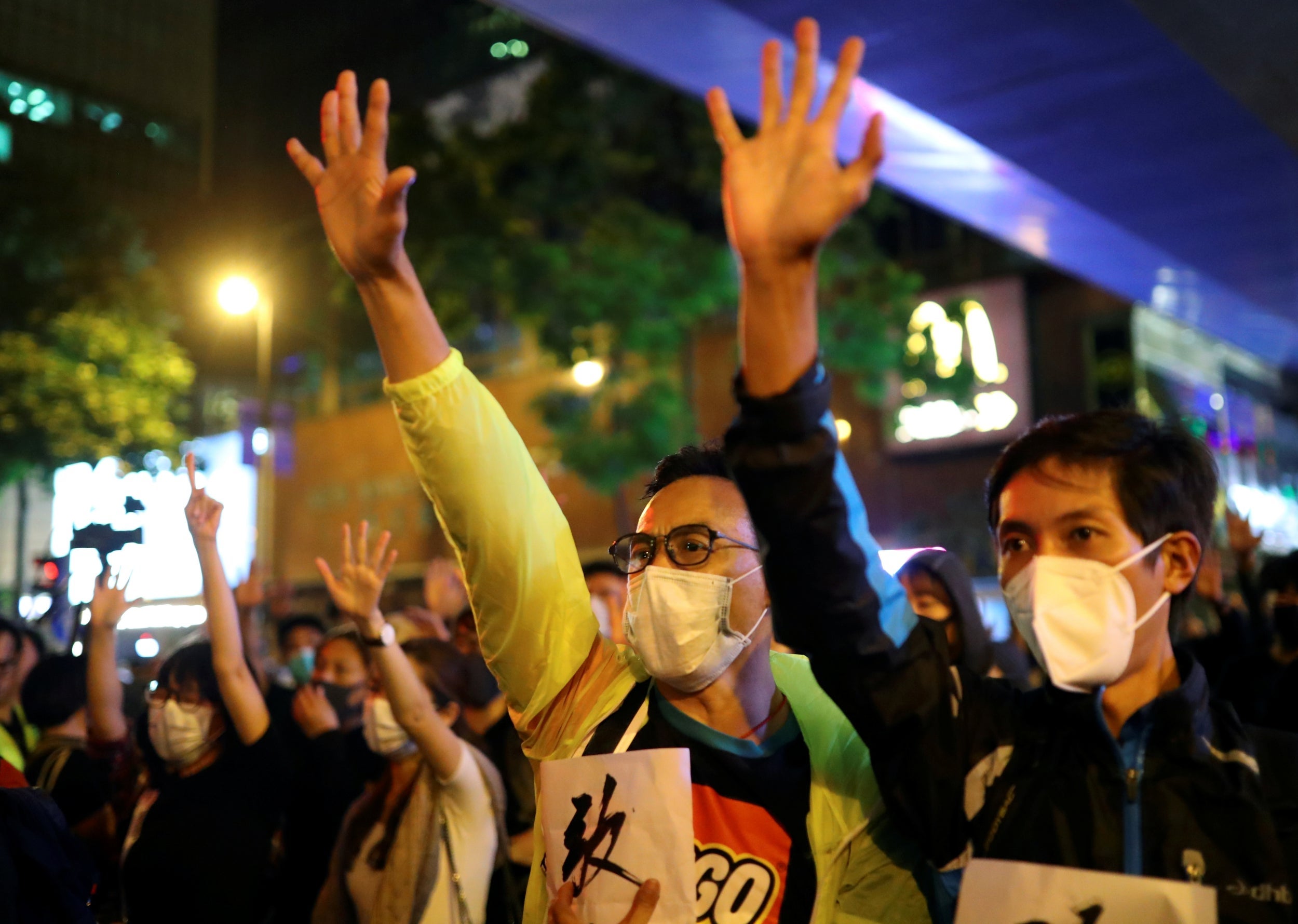Hong Kong: Election landslide offers way out of crisis for embattled city – if only Beijing were willing to accept it
Analysis: Carrie Lam says she will ‘reflect’ on crushing defeat in district council polls. If she acts fast, the city might just be saved from further bloodshed

Your support helps us to tell the story
From reproductive rights to climate change to Big Tech, The Independent is on the ground when the story is developing. Whether it's investigating the financials of Elon Musk's pro-Trump PAC or producing our latest documentary, 'The A Word', which shines a light on the American women fighting for reproductive rights, we know how important it is to parse out the facts from the messaging.
At such a critical moment in US history, we need reporters on the ground. Your donation allows us to keep sending journalists to speak to both sides of the story.
The Independent is trusted by Americans across the entire political spectrum. And unlike many other quality news outlets, we choose not to lock Americans out of our reporting and analysis with paywalls. We believe quality journalism should be available to everyone, paid for by those who can afford it.
Your support makes all the difference.The resounding victory for pro-democratic parties in Hong Kong’s district council elections may have only limited practical implications for the city’s overall government, but the message it sends Beijing is a powerful one.
The 388 new “pan-dem” district councillors (those from the city’s broad anti-Beijing camp known as the pan-democracy group) will mostly be dealing day to day with local matters like transport and bin collection.
The councils are also responsible for putting forward 117 of the 1,200-strong electoral college that will decide the next chief executive. But the system is otherwise so skewed towards the pro-Beijing establishment that even if they had won every seat in Sunday’s vote, it would have made little difference.
The bigger significance of the result is in its symbolic value, says Dr Mareike Ohlberg, research associate at the Mercator Institute for China Studies in Berlin.
With the pan-dems winning 90 per cent of seats on a record 71 per cent turnout – double that of the local elections four years ago – the results conclusively “refute one of the main points that the party-state has been pushing, which is that the silent majority opposes the protests”, Dr Ohlberg told The Independent.
Beijing has been pushing this line so hard that the party leadership might have started to believe it themselves, she suggests, with Chinese media clearly caught on the back foot by the results and showing little to no coverage of the issue on Monday. “The most interesting part is that the Communist Party had not prepared a spin for this kind of outcome, showing they are disconnected from the realities on the ground in Hong Kong,” she said.
China, put on the defensive, will instinctively see the result as a threat, says Professor Steve Tsang, director of the Soas China Institute in London.
“By any measure this has been a tremendous success as a democratic exercise. But from Beijing’s perspective, it shows Hong Kong is unruly and dangerous, because its democracy cannot be relied on,” he said. “The Chinese definition of a dependable democracy is one that will do exactly what Beijing wants. And this one doesn’t.”
There may still be a way to a peaceful compromise, however, if chief executive Carrie Lam can use what little agency she has left to reach out to protesters and offer a judge-led commission of inquiry into the last six months of crisis. This, coupled with a promise not to prosecute protesters until it was complete, could meet almost all the movement’s remaining demands in one go.
It would require an about-turn from Ms Lam – she has, after withdrawing her hated extradition bill, insisted she will give no more concessions. But the election result gives her a chance to, in her own words, “seriously reflect” on that position.
The election, both in its result and the way it was conducted, sent “a very clear message to the government [from the people]: that we are reasonable, we are responsible, and you have another chance to listen to us,” said Professor Tsang.
And if Ms Lam can find a route to a settlement, it is just possible Beijing will tolerate one more compromise. “Because at the end of the day,” Professor Tsang argues, “Beijing does not want to destroy Hong Kong.”
For the protest movement, which has developed a stubborn hardcore in recent weeks who may continue pushing for direct action, the result is a moment for celebration – but also its own reflection.
They have the opportunity now to reclaim the moral high ground, and to show that violence is not their default position. If they can do that, and accept that compromise means neither side gets everything they want, then a deal might just be found that saves Hong Kong from any further bloodshed.
Join our commenting forum
Join thought-provoking conversations, follow other Independent readers and see their replies
Comments